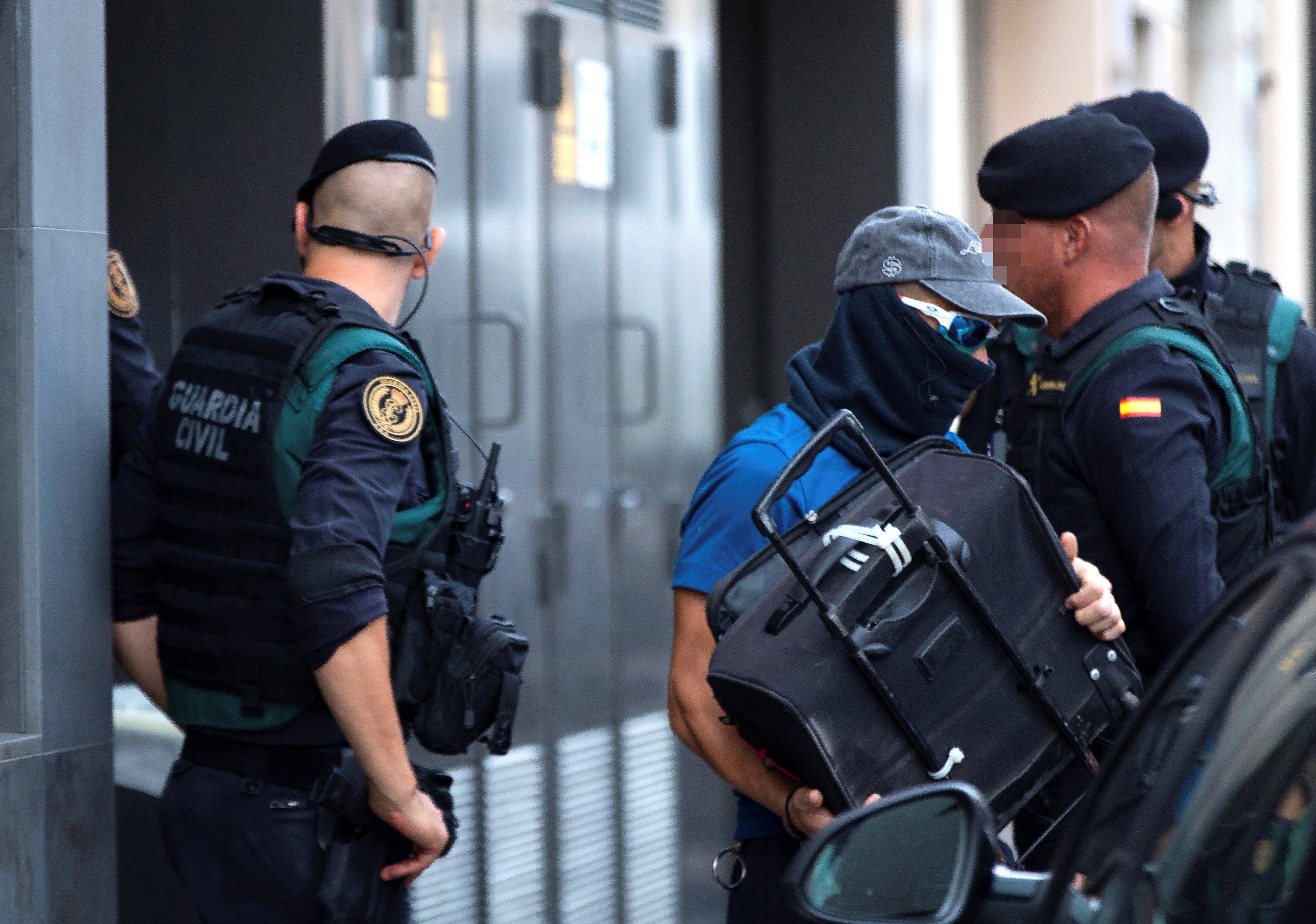Spain's National Audience court has this Thursday granted bail to two more of the seven Catalan pro-independence activists who had been in provisional prison accused of terrorism offences since their arrest in a massive Civil Guard operation on September 23rd. Today's decision to release Ferran Jolis and Alexis Codina from prison after three months follows the granting of bail last Friday to three other CDR (Committee for the Defence of the Republic) activists jailed in the so-called Operation Judas: Xavier Buigas, Guillem Xavier Duch and Eduardo Garzón.
For Jolis and Codina, the Madrid court has set the same precautionary measures as it imposed on the three other CDRs who were released on bail last Friday, according to court sources: they are required to appear before a court every week and are prohibited from leaving the Spanish state. For Jolis, bail was fixed at 5,000 euros - the same as for the three activists released last week. However, Codina was required to post bail of 10,000 euros.
Nine pro-independence activists from several different localities in Catalonia were originally arrested in the 500-officer police operation on September 23rd, which dominated Spanish media during the run-up to the October 14th announcement of the Supreme Court verdicts against the 12 Catalan pro-independence leaders. Two of those detained were released the same day. Information about the operation and the nature of the terrorism accusations was, in theory, subject to a court prohibition on publication for several weeks. But in practice, a steady stream of rumours, alleged facts and even Civil Guard videos were leaked and published widely by Spanish media. The claims centred in particular on attempts to produce explosives, on connections to key pro-independence politicians, and on their organization to carry out alleged high-impact actions, as part of a special CDR unit known as the Tactical Response Team.
Now, three months later, the court has decided that, for the moment, five of the seven who it required to be held in custody can be granted bail. The other two, Germinal Tomàs and Jordi Ros are still on remand in Madrid's Soto del Real jail.
"No contact with explosives"
Of those released today, Ferran Jolis, a member of the CDR in the town of Santa Perpetua de Mogoda, is one of two arrested on September 23rd who opted for a court-appointed lawyer rather than from the Alerta Solidària legal support group which represented most of the others. Jolis testified before both the Civil Guard and the National Audience judge. In early December, his new lawyer filed a complaint for the treatment he had received between his arrest and his imprisonment, considering his fundamental rights to have been violated.
In the summary of the case, Jolis is credited with creating the Tactical Response Teams. According to the summary, Jolis testified before the Civil Guard that he was asked for advice on whether it was tecnically possible to secure communications for one week, with cost no object, if a "peaceful" occupation of the Catalan Parliament took place, with the intention that the Catalan president Quim Torra would be "closed inside on D-Day".
According to the court ruling, sighted by the Catalan News Agency, the National Court has assessed Jolis as one of those investigated who "had no material contact with explosives despite their involvement in the facts of the case." For that reason, he was granted bail, and it was expected that he would be released from prison later this Thursday.
"In possession of documents"
In the case of Alexis Codina, required to post a higher bail bond of 10,000 euros, the court assessed that he had no explosives in its home, but he did have "precursors". "The substance thermite was not found in the search of his home, but there were precursors to it," says the ruling. That is,"only substances which, when properly mixed and properly followed, may become explosives." However, the summary of the case classifies Codina as one of the members of the group's explosives "production nucleus". He was in possession of "documents giving information on how to make explosives."
The ruling also said that the court "had not entered into an evaluation of the accused's statements that the substances were used in his job as a restorer." Nevertheless, it found "the objective absence of any explosives in the hands of Codina", and because of this, it classified his situation is like that of the other CDR members who were imprisoned and now granted bail because they had no material contact with explosives. In addition, the court appreciated that Codina was strongly grounded in social and family terms and believed that there was no risk of him hindering the judicial process or destroying evidence.

